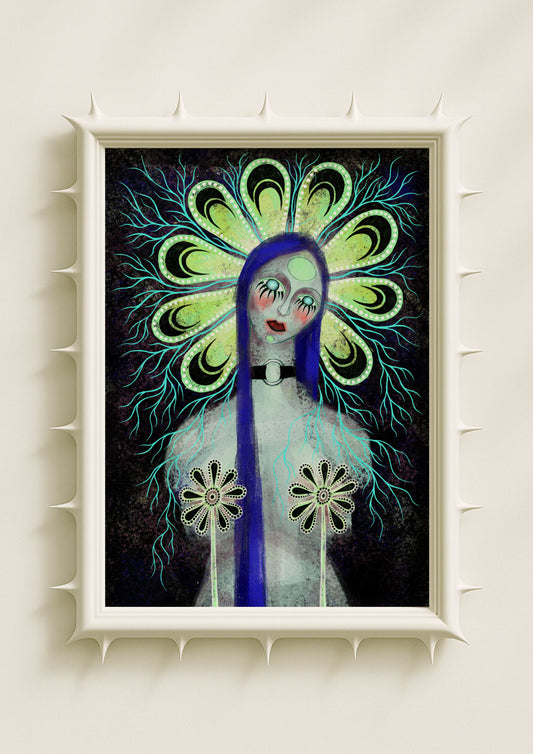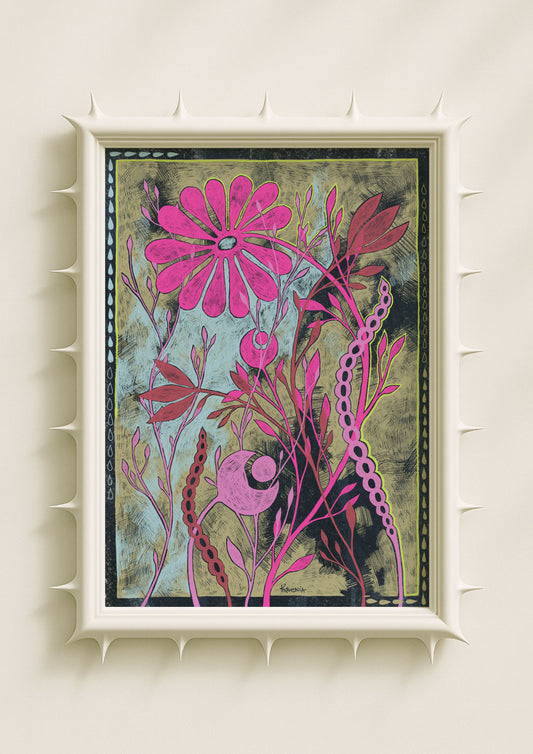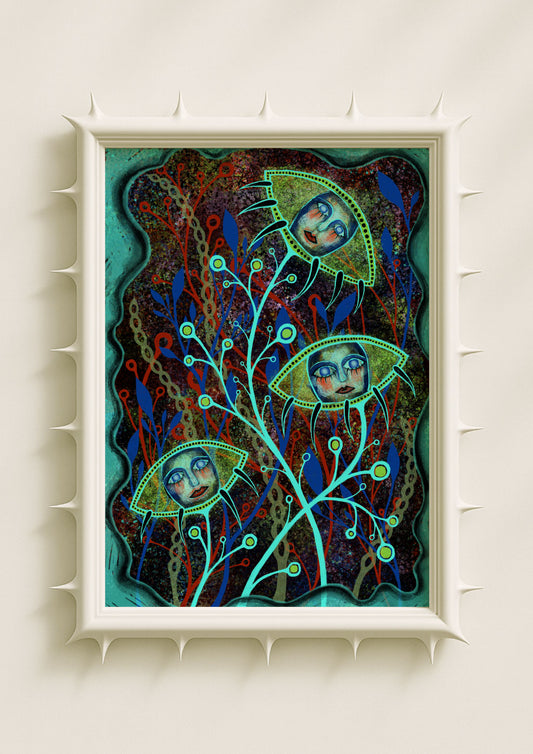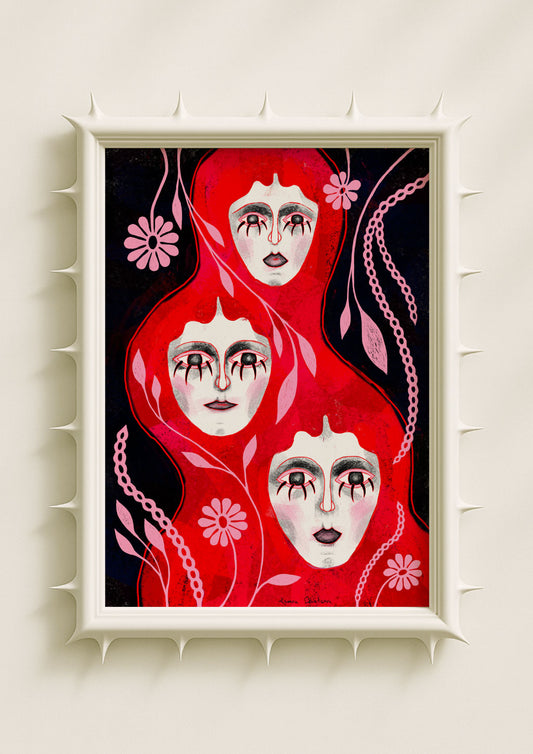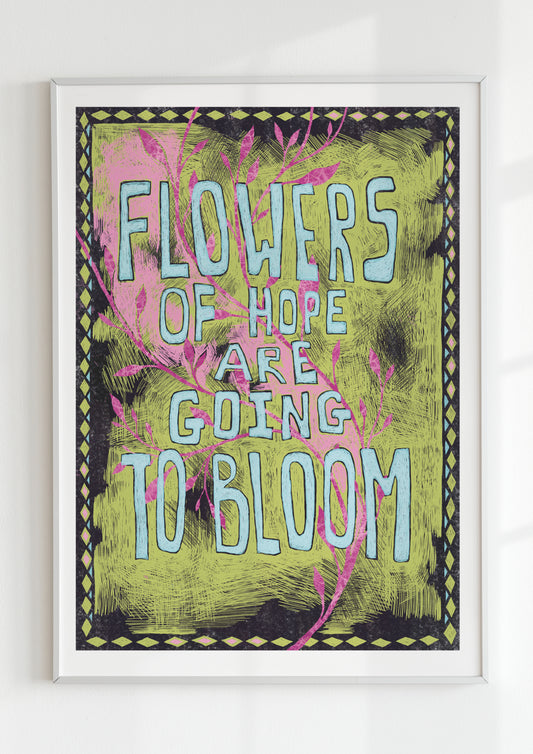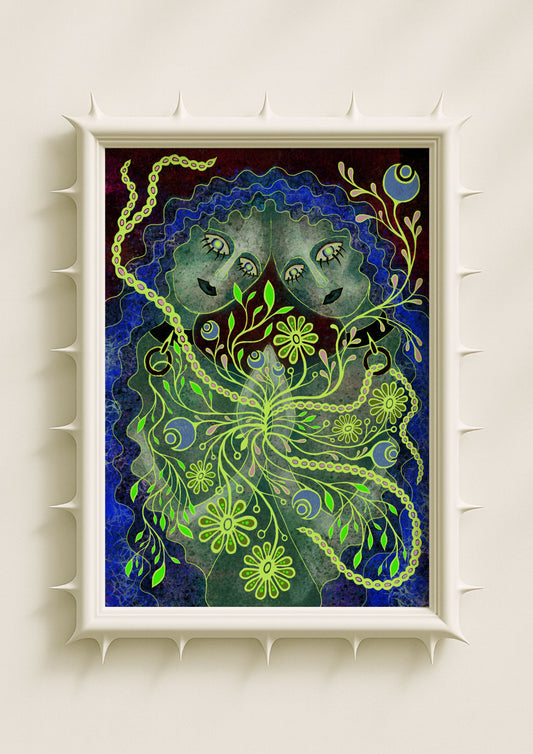The Corridor as Threshold
In most homes, hallways are treated as transitional spaces, mere connectors between rooms. They are rarely seen as destinations in themselves. Yet in architecture, corridors have long embodied the symbolic role of thresholds—places between one state and another, where the act of passing through acquires meaning.

When art enters these spaces, particularly in the form of posters, the hallway becomes more than an empty passage. It becomes a liminal zone, a site where imagery and imagination transform walking into journeying.
Surrealism and the Portal
Surrealism has always been fascinated with thresholds: doors, mirrors, corridors. These motifs reflect the psyche’s fascination with crossing from the known into the unknown. Hallway posters that employ surreal or symbolic imagery continue this tradition, offering not simply decoration but passage. A botanical motif that mutates into dreamlike forms, or a portrait that blurs into abstraction, does not merely hang—it opens a portal.
In this way, even the most ordinary corridor becomes charged with symbolic resonance.
Posters as Anchors of Imagination
The choice of hallway posters can shape how the act of movement is felt. A sequence of symbolic prints can create rhythm, echoing steps with visual beats. A single oversized surreal image can transform the end of a hallway into a horizon, a destination of thought.

Unlike living rooms or bedrooms, hallways carry momentum. They are never still. Posters here do not just adorn—they accompany, guiding the walker as companions on a miniature journey.
Liminality in Domestic Space
To call a corridor liminal is to acknowledge that it is neither here nor there. It belongs to no single room, no fixed function. Hallway posters embrace this ambiguity by suggesting atmospheres of in-betweenness. Symbolic faces that watch as one passes, abstract patterns that shimmer in peripheral vision, surreal botanicals that feel half alive—all remind us that thresholds have their own energy.
By treating the hallway as an imaginative zone, interiors expand beyond utility.
Surreal Journeys at Home
Hallway posters can thus be understood as portals. They remind us that even the most practical parts of a home can be charged with imagination. A corridor becomes not just a path between rooms but a passage through moods, memories, and symbolic imagery.

In the language of surrealism, hallways are stages for the unconscious. In the language of interiors, they are canvases of transformation. To walk through a hallway adorned with symbolic posters is to step, however briefly, into a journey of the mind.
Toward a Poetics of Corridors
To reimagine hallways through posters is to reclaim overlooked spaces as sites of wonder. Surreal and symbolic imagery turn emptiness into narrative, thresholds into experiences.
In this sense, hallway posters are more than ornament. They are portals: openings into imagination, invitations to see movement itself as a form of art.
